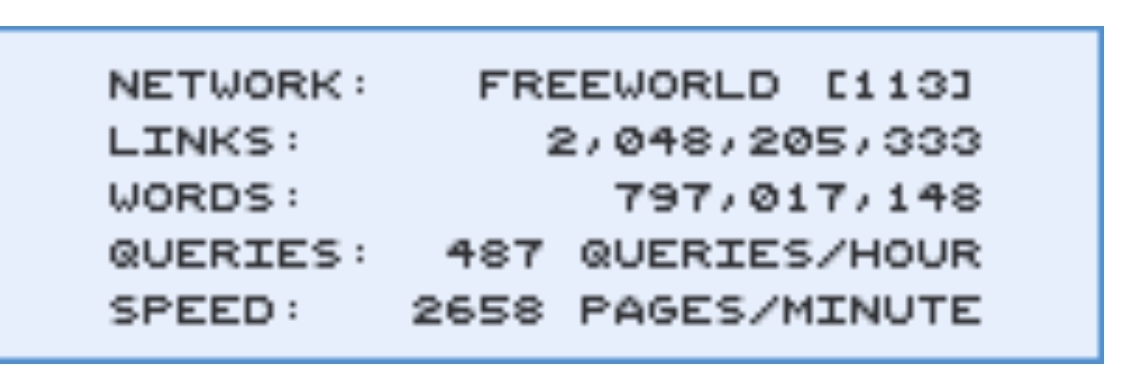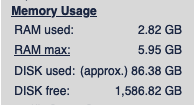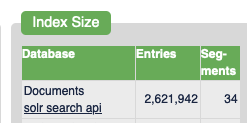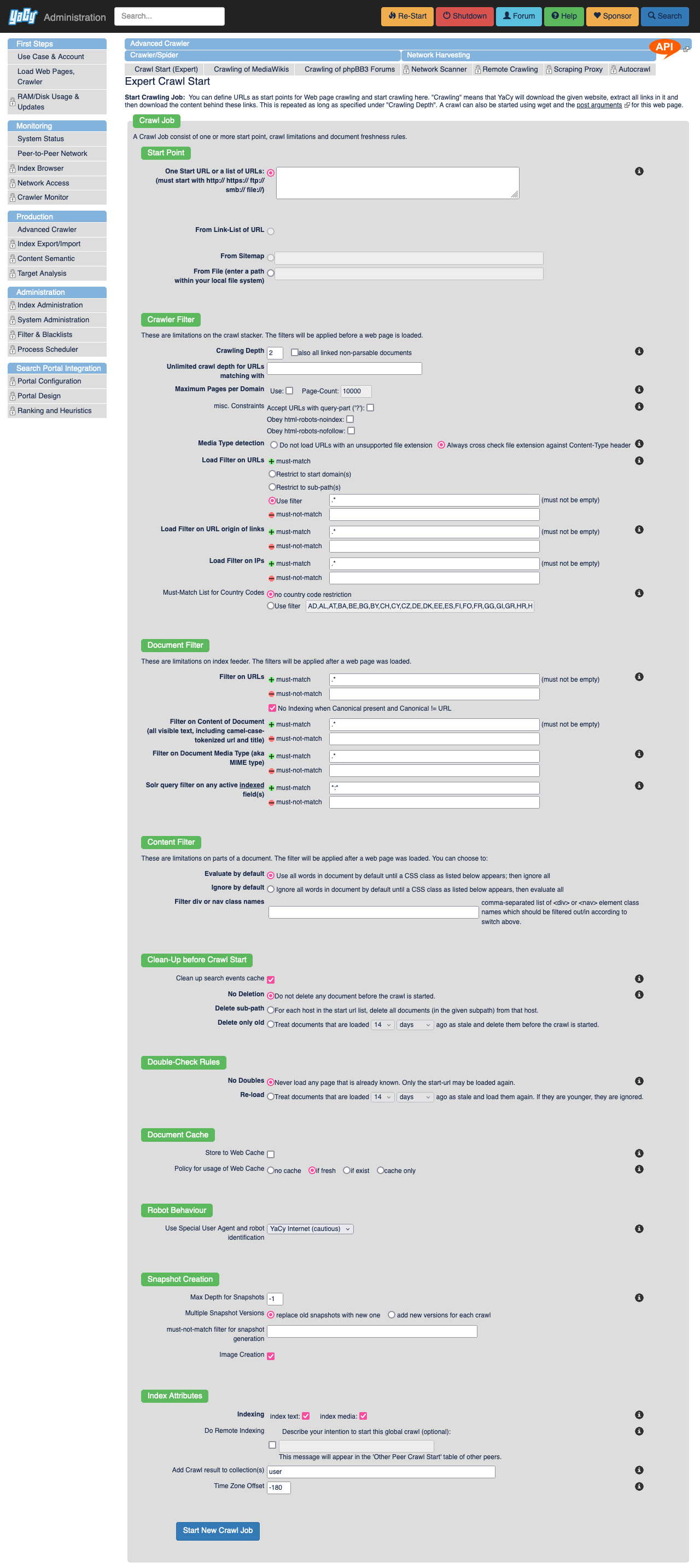A purported leak of 2,500 pages of internal documentation from Google sheds light on how Search, the most powerful arbiter of the internet, operates.
The leaked documents touch on topics like what kind of data Google collects and uses, which sites Google elevates for sensitive topics like elections, how Google handles small websites, and more. Some information in the documents appears to be in conflict with public statements by Google representatives, according to Fishkin and King.
Who wants to take bets that Search itself ends up in The Graveyard soon, leaving nothing but the new AI abomination in place?
More likely they will just slowly rebrand search to more AI type things. Then slowly retire the non-AI parts in the background.
I could see them not letting you directly search anymore, only through the LLM bot. Because that’s been how things have been going anyway, Google seems to fully ignore literal searches with quote marks now, presumably because it doesn’t fit their vision of using natural (imprecise) language. So why not make the LLM write the search query for you in a completely opaque way?
Rand Fishkin, who worked in SEO for more than a decade, says a source shared 2,500 pages of documents with him with the hopes that reporting on the leak would counter the “lies” that Google employees had shared about how the search algorithm works.
Am I supposed to care that the poor SEO assholes that need to get their ads more visibility weren’t being given all the instructions on how to do that by the search engine?
Most of this article is SEO “experts” complaining that some of the guidelines they were given didn’t match what’s in the internal documents.
Google is shit, but SEO is a cancer too. I can’t be too bothered by Google jacking them around a bit.
And I supposed to care that the poor SEO assholes that need to get their ads more visibility weren’t being given all the instructions on how to do that by the search engine?
No. You’re supposed to care that a company is pointlessly* lying, thus it’s extremely likely to deceive, mislead and lie when it gets some benefit out of it.
In other words: SEO arseholes can ligma, Google is lying to you and me too.
*I say “pointlessly” because not disclosing info would achieve practically the same result as lying.
Google has been pretty crap for a decade now.
I still remember demoing how easily they can manipulate people by searching “Pakistan News” and the results being exclusively all Indian media outlet propaganda way back in 2016.
I really feel like they never got properly exposed for this just because it’s a search engine and not a social media, so people didn’t care enough about it. Also because Google was still top of the game in most results compared to other sites back then.
I guess we are going to be in for more SEO spam than usual if this document is accurate. But I think its good that we are finally going to get a better understanding how Google manipulates people with the algorithm.
So a win-lose situation.
Some information in the documents appears to be in conflict with public statements by Google representatives
I would have never guessed that.
Crazy how self regulation always winds up like this. By crazy I mean predictable of course.
You’re supposed to move to a different search engine for the market to work. I already have, have you?
This approach is doomed to fail, so long as the general public isn’t aware of the problem or its scale. Government regulation is the only way.
It’s honestly quite strange that this sort of black box system is allowed to exist. How are governments around the world OK with a vast majority of the internet being filtered through a private company’s lens without any sort of insight into how it works? That sounds skeevy as shit.
Better than those governments having control. Ideal scenario is everything is decentralized
Why is that better? It may not be ideal but governments have at least some accountability.
Because that paves a very easy path to corruption . No freaking way do i wanna live in a country where the government has absolute control over all information spread.
Don’t get me wrong, fuck Google, but government control of the Internet just sounds worse
What makes governments any more susceptible to corruption than a private organization?
I’m not actually talking about governments having absolute control. That’s a pretty extreme scenario to jump to from from the question of if it’s better for a private company or a government to control search.
Right now we think Google is misusing that data. We can’t even get information on it without a leak. The government has a flawed FOIA system but Google has nothing of the sort. The only way we’re protected from corruption at Google (and historically speaking several other large private organization) is when the government steps in and stops them.
Governments often handle corruption poorly but I can rattle of many cases where governments managed to reduce corruption on their own (ie without requiring a revolution). In many cases the source of that corruption was large private organizations.
You make some good points. But consider this. This data was publicly leaked by hackers. These hackers, if we go by precedent, will probably get away Scott free. sure it was very difficult to find this data, but not impossible. On the other hand a government if faced with a breach like this, would probably find the hackers and detain them as threats to national security, as we’ve seen with Edward Snowden.
Though our system isn’t perfect, i think that having a corrupt Google is better than a corrupt government in this case. As you said, Google can be corrupt, but the government can step in and take over, whereas, if a government decides that it’s access to citizens data is important enough, they can continue with corruption with less resistance. I mean, who guards the guards right?
Did you notice the US President from 16 to 20?
Even after felony convictions, there is no accountability or consequences.
Have you seen the US Supreme Court?
Don’t tell me a government has any accountability when minds are twisted by misinformation engines like Fox & Friends.
Not that a company is any better, yet alone google.
Can’t wait for selfhosted web search to become better.
How is that even supposed to work? These search engines need per definition massive databanks to search through. Either you need your own crawler and indexer which is more than just inefficient, or you are limited to a relatively short list of curated static results.
You mean hosting your own crawler/indexer? That doesn’t really sound like a thing you could do cost-effectively.
Surprisingly, it’s very doable, requires basic technical knowledge and relatively minimal computing resources (runs in the background on your computer).
I have tampermonkey script that sends yacy to crawl any websites that I visit, and it’s keeping up relatively good index for personal use of the visited websites. Combine yacy with ~300gb of Kiwix databases, add searxng as a frontend and you have pretty strong self hosted search engine.
Of course you need to supplement your searches from other search engines, as yacy does not crawl the whole web, just what you tell it to.
I encourage anyone who’s even slightly interested on this stuff to try Yacy, it’s ancient piece of software, but it still works very well and is not an abandoned project yet!
–
I personally use Yacy mostly on private mode, but it does have the distributed network there as well.

This is interesting, have you had it index reddit? I’m just wondering how much storage space the database takes up.
Hi!
Great question! I don’t crawl reddit, but this applies to other large sites as well. reddit themselves they have at this very moment banned the ip range where I host my Yacy at (Hetzner). I just looked up from my index that I do have 257k pages indexed from reddit through teddit I used to run, this is from before reddit api-enshittification, going to delete those right now.
And the way how the crawling is done is you define crawling depth, which limits how much content is crawled from the site.
- 0 crawling depth = only the page you send Yacy to, nothing more.
- 1 crawling depth = all the links on the page you send Yacy to
- 2 crawling depth = all links on the page you send Yacy to, and all links on the pages crawled…
- 3 …
- n …
… etc.
I have my tampermonkey scripts set to only crawling depth of 1 at the moment (Just set them to 2 actually, kinda curious how much more I will be crawling), I’ve manually crawled some local news sites as a curiosity at the beginning. And my database is currently relatively small, only around ~86.38 gigabytes according to Yacy. This stores aproximately 2.6 million documents in Yacy’s Solr.


–
Yacy has tons of options for crawling, so you can customize how much it crawls and even filter out overly large sites with maximum number of documents set when you send Yacy there.
Large picture of Yacy's interface for starting a crawl.

–
The tampermonkey script I’ve been talking about in these posts, it’s very simple script: https://github.com/JeremyRand/YaCyIndexerGreasemonkey
Hit me up if you guys have more questions! I’m by no means an expert on Yacy, but I will do my best to answer.
No problem we crowdsource the crawling torrent style.
We outsourced that to google for reasonnable performance reason. But they shit the bed so now there’s no choice but to do it ourselves.
ooh that might be an interesting app to run on veilid
What is that and how does it apply ?
Veilid is a peer-to-peer network and application framework released by the Cult of the Dead Cow on August 11, 2023, at DEF CON 31.[1][2][3][4] Described by its authors as “like Tor, but for apps”,[5] it is written in Rust, and runs on Linux, macOS, Windows, Android, iOS,[6] and in-browser WASM.[7] VeilidChat is a secure messaging application built on Veilid.[1][4]
Veilid borrows from both the Tor anonymising router and the InterPlanetary File System (IPFS), to offer encrypted and anonymous peer-to-peer connection using a 256-bit public key as the only visible ID. Even details such as IP addresses are hidden.[4]
Federated bookmarks?
Federated directories. We’re going back to Yahoo like it’s 1995
I loved Geocities!
Neocities is trying to be a modern reincarnation https://neocities.org/
I mistook that as neopets
Webrings!!!
<under_construction.gif>
Uh…I know we’re all just having fun here, but I need to be part of a webring again. If anyone is more than joking, I kinda need to know about it. Thanks.
there are tons of webring still going these days!
Seriously? Cool. I’m going to go do some research then. And maybe entirely change the purpose of my blog, just to fit into one…
Right!
Before his company was able to block more of Microsoft’s own tracking scripts, DuckDuckGo CEO and founder Gabriel Weinberg explained in a Reddit reply why firms like his weren’t going the full DIY route:
“… [W]e source most of our traditional links and images privately from Bing … Really only two companies (Google and Microsoft) have a high-quality global web link index (because I believe it costs upwards of a billion dollars a year to do), and so literally every other global search engine needs to bootstrap with one or both of them to provide a mainstream search product. The same is true for maps btw – only the biggest companies can similarly afford to put satellites up and send ground cars to take streetview pictures of every neighborhood.”
What are the current contenders?
the only one I know that isn’t a proxy search is yacy
I was looking at it the other day unfortunatly its got quite poor results
What it looks like beyond Google and Bing
It would be much harder to know what exists beyond “GBY” (Google, Bing, Yandex) and how it all works without the work of Rohan “Seirdy” Kumar. For three years, Kumar has been updating a heavily annotated list of search engines with their own indexes. It is 7,000 words, but only a portion of it deals with engines offering general indexing, in the English language. You can read Kumar’s evaluation methodology for a better understanding of how he compared and assessed sites.
What stands out? Mojeek (“it’s not bad… I’d live”) and Stract (“a useful supplement to more major engines”) are two of Kumar’s favorites. Right Dao has “very fast, good results,” in part because its crawler starts off from Wikipedia. Yep reaches farther out, showing results that link to and back from sites related to your query and also promises to share ad revenue with creators. All of them show promise, but you get the sense that they’re a second car, or a third bicycle, rather than a primary transport.
There are far smaller-scoped engines in other sections of Kumar’s post. If you’re wondering where that one other search engine you’ve heard about is, it’s probably in the “Semi-independent indexes” section, because it uses a GBY index when its own results are not strong enough. Here, you’ll find cryptocurrency-friendly, controversy-courting-founder-having Brave, a few engines that either “resell” GBY results or stuff affiliate links into them, and “the most interesting entry,” according to Kumar, Kagi.
Kagi requires an account and uses its own index, Teclis, in combination with Google, Bing, Yandex, Mojeek, and others, including, notably, Brave. Kagi’s founder has strong opinions on the AI-based future of search and responding to harmful searches in ways that are not “scalable.” How much of that does or does not bother you will vary, but it’s worth noting that Kagi also suffers when the GBY triumvirate is restricted.
Ars Technica this week: Bing outage shows just how little competition Google search really has
The referenced search engine comparison by Rohan “Seirdy” Kumar
I’ve been using Kagi and really like it so far. It’s not good for local stuff, but afaik only Google and Bing have the resources and userbase for things like maps and reviews. It’s designed to be an ad-free ‘premium’ search engine and only earns revenue from users paying for membership.
OpenStreetMap’s platform is the only real way to compete against Google and Apple and it’s why Microsoft even though it has Bing Maps, has licenced to them resources like satellite imagery for mapping. It’s awesome in bigger population areas but there’s still a lot to map in rural places outside the EU.
Review is harder. Right now the leading open platform afaik is Open Reviews (aka Mangrove Reviews) which has tie-ins to OSM projects like MapComplete. OsmAnd and OrganicMaps have open tickets to hook into that ecosystem. You’re right about the userbase problem though, I think it (or a successor) needs AP federation to really take off. That being said there’s several active non-Google nonfree alternatives like Yelp and TripAdvisor as well as niche sites for things like camping, parks, and schools.
can’t emphasise too much that this piece is a very necessary read for anyone who wants to know about search; not just because it says good things about us, but because of the depth of research which has been put in here. Most times you encounter an article about indexes they are just taking whatever a (meta)search engine says about themselves, not even looking at privacy policies for “relationships with microsoft” etc. or doing any comparative work.
If they’re taking tips from Google, why would they get better?














